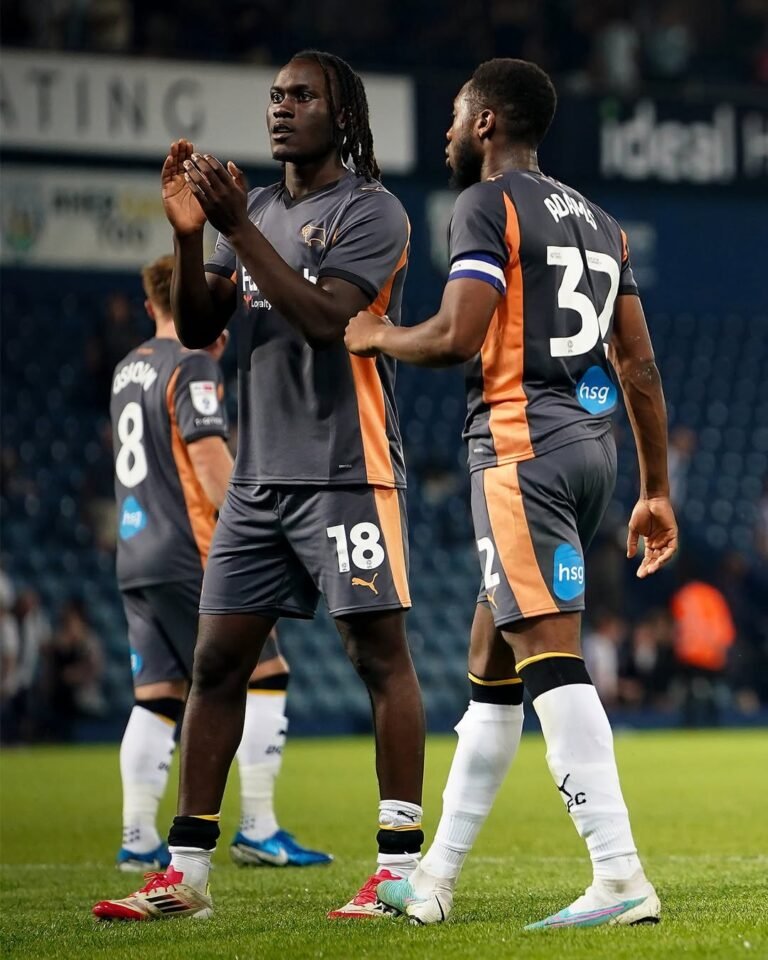
The release of the English Football League (EFL) fixtures is always a highlight in the football calendar, setting the tone for the months ahead. On 26 June 2025, fans across the UK tuned in as all 72 EFL clubs discovered their schedules for the new season. With excitement building for the Championship, League One, and League Two, the fixture announcement offers supporters a first glimpse at the journeys their teams will face in the race for promotion, survival, and local bragging rights.
When Does the EFL Season Start?
For the 2025/26 campaign, League One and League Two kick off over the weekend of 1-3 August. The Championship follows a week later, with matches running from 8-10 August. This staggered start allows each division its own moment in the spotlight and gives fans time to plan for the opening weekend. The regular season will run until early May 2026, with the final games in all three divisions scheduled for 2-3 May.
Opening Weekend Highlights
The fixture release always brings anticipation for the opening day, and this year is no different. In the Championship, Birmingham City, fresh from promotion, hosted Ipswich Town in a Friday night clash on 8 August. Wrexham, who have made headlines with their remarkable rise and celebrity ownership, begin their first Championship campaign in over four decades with a tough away trip to Southampton. Leicester City, another club relegated from the Premier League, start at home against Sheffield Wednesday on Sunday 10 August.
In League One, Luton Town, recently relegated from the Championship, face AFC Wimbledon on the opening Friday, 1 August. The League Two campaign starts on Saturday, 2 August, with Barnet hosting Fleetwood in a live televised match, marking Barnet’s return to the Football League after seven years. Oldham, another club climbing back from non-league, face Milton Keynes Dons in their first fixture.
Fixture Structure and Key Dates
The EFL’s fixture calendar is meticulously planned. The Championship season will have 46 rounds, spread across 33 weekends, nine midweeks, and four bank holidays. League One and League Two also play over 33 weekends, but with five midweek rounds and eight bank holidays and international breaks. This structure ensures a balance between home and away matches, minimises long travel during busy periods, and accommodates other competitions such as the FA Cup and Carabao Cup.
The Carabao Cup kicks off in mid-August, with the first-round draw on 26 June and matches during the week commencing 11 August. The final is set for 22 March 2026. The Vertu Trophy group stage begins in early September, with its final on 12 April 2026. The play-off finals, which traditionally bring the season to a dramatic close at Wembley, will take place over the late May bank holiday weekend: Championship on 23 May, League One on 24 May, and League Two on 25 May.
How Are Fixtures Compiled?
Compiling the EFL fixtures is a complex process. Over 1,600 matches are scheduled each season, requiring careful coordination with clubs, local authorities, and the police. The EFL ensures that no club plays three consecutive home or away games and tries to balance home and away matches around key dates like Boxing Day and New Year’s Day. Local derbies and high-profile fixtures are spaced out to reduce pressure on local infrastructure and policing. The process involves a working party of club representatives and supporters, with fixture questionnaires sent out to identify potential clashes with other major events.
Broadcast and Fan Experience
This season, fans will benefit from a landmark television agreement. Over 1,000 EFL matches will be broadcast live on Sky Sports or streamed online, giving supporters more access than ever before. For the opening weekend, every match across the Championship, League One, and League Two will be available to watch live, a move welcomed by fans and clubs alike. The early allocation of broadcast picks—up to six months in advance—means supporters can plan their trips and TV viewing well ahead of time.
Teams to Watch and Promotion Contenders
The Championship features several storylines to follow. Southampton, Ipswich, and Leicester are all looking to bounce back to the Premier League at the first attempt. Birmingham, Charlton, and Wrexham bring fresh energy to the division after promotion, with Wrexham’s Hollywood owners adding extra intrigue to their campaign. Ipswich Town are currently the bookmakers’ favourites for the title, having attracted the most backing in the promotion market.
In League One, Luton Town are tipped for a strong campaign after their recent relegation, while Cardiff and Plymouth are eager to return to the Championship. League Two welcomes Barnet and Oldham back to the EFL, with both clubs aiming to build on their momentum from the National League.
Attendance and Fan Engagement
Matchday attendance across the EFL remains robust, with clubs like Sunderland and Leeds United leading the way in the Championship, averaging over 36,000 fans per home game last season. Rising attendances reflect a renewed appetite for live football, with many clubs investing in stadium improvements and fan engagement initiatives. The ELF’s commitment to broadcasting and fixture transparency is designed to further enhance the matchday experience for supporters across the country.
Conclusion
The release of the EFL fixtures marks the true start of the football season for millions of fans. With new teams, high-profile clashes, and a packed calendar, the 2025/26 campaign promises drama from the first whistle to the last. Whether you follow the Championship, League One, or League Two, this season’s fixture list offers something for everyone—rivalries rekindled, new journeys begun, and the dream of promotion alive for all 72 clubs. As anticipation builds, supporters across the UK can now circle the key dates, plan their away days, and look forward to another unforgettable year of EFL football.
To read more click here




